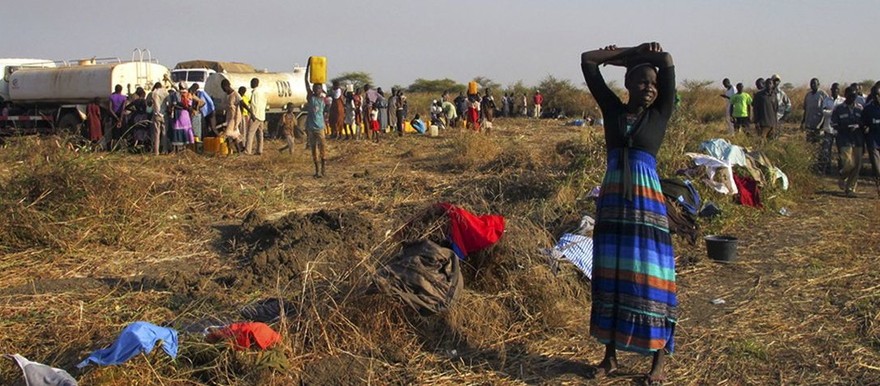The number of people who fled their homes since violence erupted in South Sudan on 15 December has risen to at least 180,000, amid concerns of potential disease outbreaks in overcrowded camps.
OCHA, the UN humanitarian coordination agency, made the estimate in a situation report published Sunday. It added the caveat that the total number is ‘likely higher’ because aid agencies have ‘very limited information about displacement outside main population centres.’
With 22,000 people, the UN base in Malakal is hosting the largest single concentration of people fleeing the violence in South Sudan.
Another 11,500 are at the Bor base, though the number there has declined in recent days.
At both of these bases a ‘real threat of cholera’ has been reported. Several measles cases were also found inside the Bentiu base, where about 8,000 people are sheltering.
In the same state “there are also concentrations of displaced people in Koch, Leer and Mayendit counties,” OCHA reported. “Public health is the main concern for the civilians inside the UN base, with three suspected cases of measles reported, and top priorities for response are health supplies, water and sanitation support,” it added.
The largest concentrations of people not protected inside a UN base are in Awerial, where about 45,000 people crossed by boat from Jonglei State, and Ragat in northern Unity State, where another 32,000 are estimated to have fled from Bentiu.
UN has shipped 88 metric tonnes of food supplies to the displaced people in Awerial County, and plans to distribute these supplies before the end of the month. In Malakal a food distribution is ongoing as of 29 December.
Another public health risk mentioned by the UN is the dead bodies that were left unburied for prolonged periods in areas that have seen heavy fighting. Towns recently experiencing this include Bor, Bentiu and Malakal.
Photo: IDPs at a base in Bentiu, Unity State, 24 December 2013 (UNMISS/Anna Adhikari)




